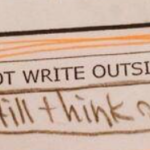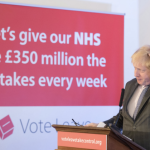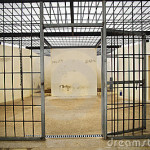People are still around who lived through the Blitz of London during the Second World War, and I’ve always been proud of my country’s stoicism, so things will get back to normal with the minimum of fuss as they did after the 7/7 bombing. The reaction tonight from Donald Trump Jr was less restrained. He quoted an old interview with London Mayor (and Muslim) Sadiq Kahn: “You have to be kidding me?! Terror attacks are part of living in the big city, says London Mayor Sadiq Khan.” Well, actually, no. What Khan actually said was that we have to get used to the threat of terror attacks in big cities.
And we do. So, I was glad to see journalist Ciaran Jenkins report: “Khan is right. These things happen. We fight against them. But we don’t wildly over-react or let them change our way of life,” said Tom Coates, from London, adding that he had lived through IRA bombings and the 7/7 attacks on the London Underground.”
As I write, this story is unfolding, so it would be foolish to speculate – as Channel 4 catastrophically did – on the attacker’s identity. Whether Donald Trump Sr will use the attack to support his ‘Islamic Ban’ is not yet known, but if it turns out to be that, as in most terrorist attacks in the UK and USA, the perpetrator turns out to be a national citizen, then a travel ban isn’t going to make much difference.
Don’t get me wrong – for the people caught up in this horror, this was a terrible event. But looking for simplistic, knee-jerk solutions isn’t the way forward. The UK terrorist level was already at ‘severe’. Sadly, when an automobile becomes a lethal weapon there’s literally nothing security forces can do to prevent these kind of attacks.
So, what can we usefully do?
It seems to me that our focus needs to shift towards education as the best means of prevention. And I don’t mean the ‘de-radicalisation’ of returning ISIS freedom fighters – by then it’s too late. No, the process needs to start in schools, and in communities. The UK has followed many developed countries in recent years in moving away from an official policy of ‘multiculturalism’. Whatever one thinks of the supposed failings of multiculturalism, I’d like to ask: do we feel any safer as a result of this shift? Equally, do our children understand ‘the other’ in the ways that they used to do under the multicultural policy?
The sad thruth is that, in the narrowing of curricula, we have lost the space to talk about empathy, cultural awareness and the possible roots of terrorism, because we’re desperate to get our Numeracy and Literacy scores up. At the same time, our 24/7 news media only reinforces the notion that, if you’re a young British kid whose religion happens to be Muslim, your sense of belonging matters less than preserving the pillars of ‘Britishness’. It’s been striking to see how much of the TV coverage so far has been focussed upon the attack on the Palace of Westminster, (and by inference, democracy), at the expense of the fate of 40 people who happened to be walking across Westminster Bridge at the wrong time.
A woman lies injured after a shooting incident on Westminster Bridge in London, March 22, 2017. REUTERS/Toby Melville
Let me speak plainly. In the face of one man’s hatred, our ONLY response has to be love. For each other, and towards those we never speak to or socialise with.
In a strange coincidence, at lunchtime today I watched a news item about the anniversary of the bombing of Brussels airport. I was there just a few days ago, having worked at the Learning By Design conference at the International School of Brussels. What struck me so forcibly during that week-end was the emphasis upon two things: the UNESCO goals, and the benefits of internationalism. I was honoured to work with students from a range of countries who were creating socially purposeful global innovations that help bring us together, not drive us apart. And, throughout the whole event, there was a palpable, and visible, sense of love between delegates, teachers and students, who came from all over the planet to learn together and appreciate our differences.
The kinds of attacks we’re now witnessing in capital cities tend to come from ‘lone-wolfs’, inspired by copycat attacks, rather than orchestrated strategies from terrorist groups. So, if we can’t stop people from renting a car and driving it into a crowd of people, can we begin to see our schools as the best hope we have of preventing the sense of isolation that seems to fuel these lone wolf attacks?
And can we make tolerance, understanding, and love for ‘the other’, a cornerstone of our schools’ purpose?
Related Posts
Also published on Medium.
Social tagging: education > Sadiq Khan > Trump





Read the last part. “It seems to me that our focus needs to shift towards education as the best means of prevention. And I don’t mean the ‘de-radicalisation’ of returning ISIS freedom fighters — by then it’s too late. No, the process needs to start in schools, and in communities. The UK has followed many developed countries in recent years in moving away from an official policy of ‘multiculturalism’. Whatever one thinks of the supposed failings of multiculturalism, I’d like to ask: do we feel any safer as a result of this shift? Equally, do our children understand ‘the other’ in the ways that they used to do under the multicultural policy?
The sad thruth is that, in the narrowing of curricula, we have lost the space to talk about empathy, cultural awareness and the possible roots of terrorism, because we’re desperate to get our Numeracy and Literacy scores up. At the same time, our 24/7 news media only reinforces the notion that, if you’re a young British kid whose religion happens to be Muslim, your sense of belonging matters less than preserving the pillars of ‘Britishness’. It’s been striking to see how much of the TV coverage so far has been focussed upon the attack on the Palace of Westminster, (and by inference, democracy), at the expense of the fate of 40 people who happened to be walking across Westminster Bridge at the wrong time.
Let me speak plainly. In the face of one man’s hatred, our ONLY response has to be love. For each other, and towards those we never speak to or socialise with.”
…”The kinds of attacks we’re now witnessing in capital cities tend to come from ‘lone-wolfs’, inspired by copycat attacks, rather than orchestrated strategies from terrorist groups. So, if we can’t stop people from renting a car and driving it into a crowd of people, can we begin to see our schools as the best hope we have of preventing the sense of isolation that seems to fuel these lone wolf attacks?
And can we make tolerance, understanding, and love for ‘the other’, a cornerstone of our schools’ purpose?”
Very much so.
In today’s world, it is necessary to educate our children about multiculturalism and educate them to be polite. It is also necessary to make the world peaceful. A peaceful environment is the best gift that we can give to next generations.